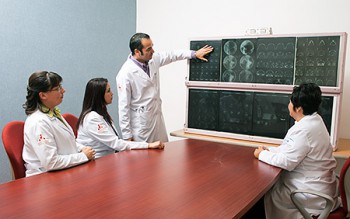
Back in the 1970s, Nobel Prize-winning scientist Linus Pauling suggested the benefits of vitamin C as a part of cancer treatment. Recent studies have shown further evidence that supports Pauling’s findings.
Can Vitamin C Make Cancer Treatment More Effective?
Scientists at the University of Iowa conducted the first phase of a series of trials to investigate the results of combining high-dose vitamin C with traditional chemotherapy and radiation. The study monitors effects on patients’ lifespan and quality of life.
Subjects included 11 patients diagnosed with brain cancer. In addition to their standard treatments, each one received 800 to 1,000 times the recommended daily dose of vitamin C. Larger doses are required because the nutrient has a half-life of only two hours inside the body.
The patients experienced only minor episodes of side effects such as dry mouth. More importantly, they exceeded the average survival time of patients receiving conventional treatment alone by four to six months.
How Vitamin C Affects Cancer Cells
A cancer cell’s damaged metabolism results in abnormally high levels of redox active iron molecules, which join with vitamin C to create hydrogen peroxide along with hydrogen peroxide-related free radicals. Scientists hypothesize that this result weakens cancer cells, making them more susceptible to treatment and hastening their destruction.
Issels® and Nutritional Immunotherapy
At Issels®, we believe that maximizing the power of your own immune system is the key to successful cancer treatment. Our nutritional immunotherapy program is aimed at supporting immune mechanisms and improving the functions of cells, tissues and organs.
Contact us today to learn more about why Issels® is a leader in non-toxic immunotherapy cancer treatment.





